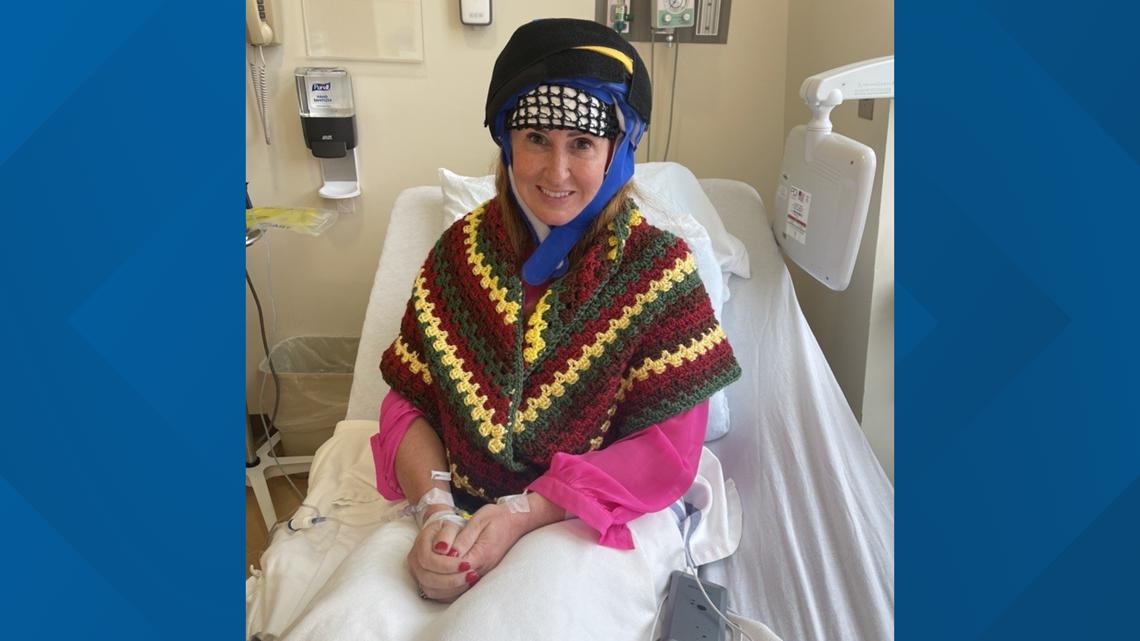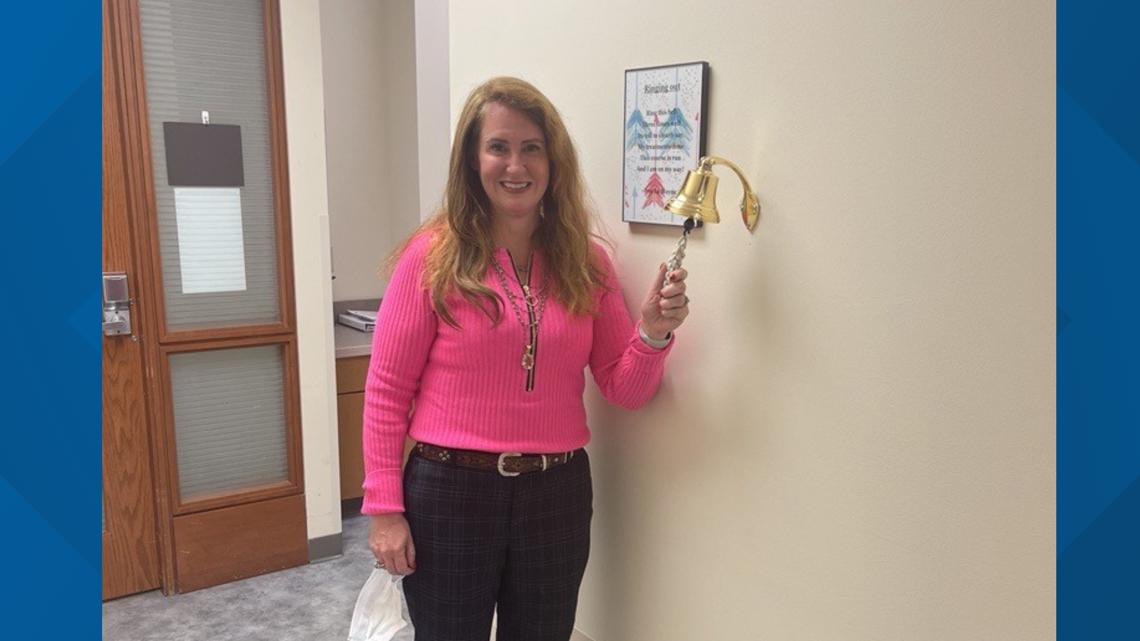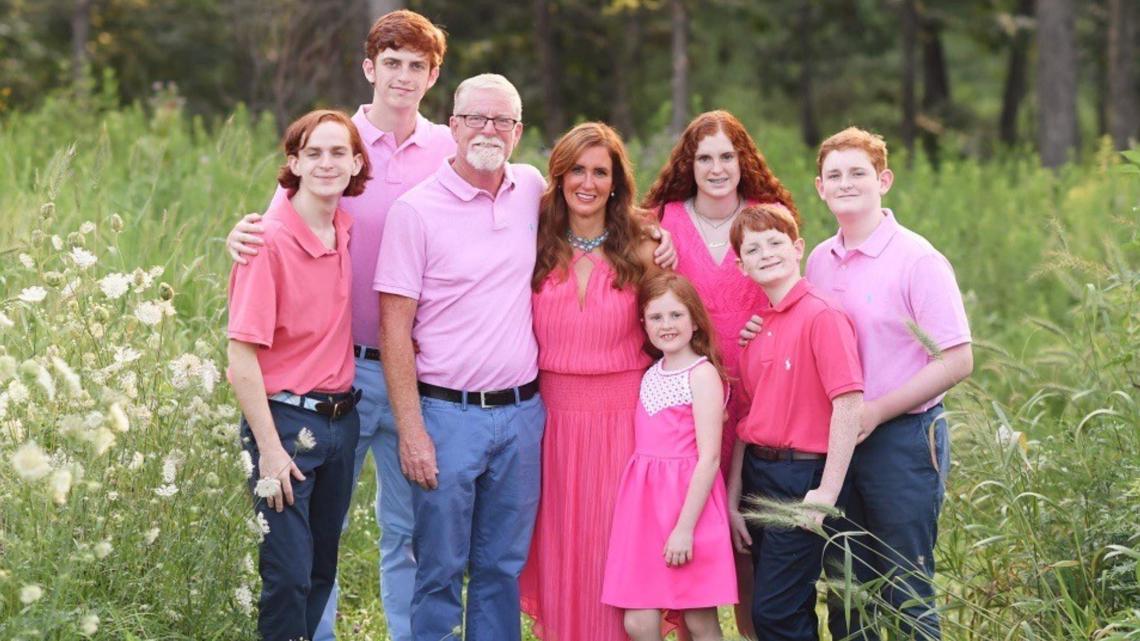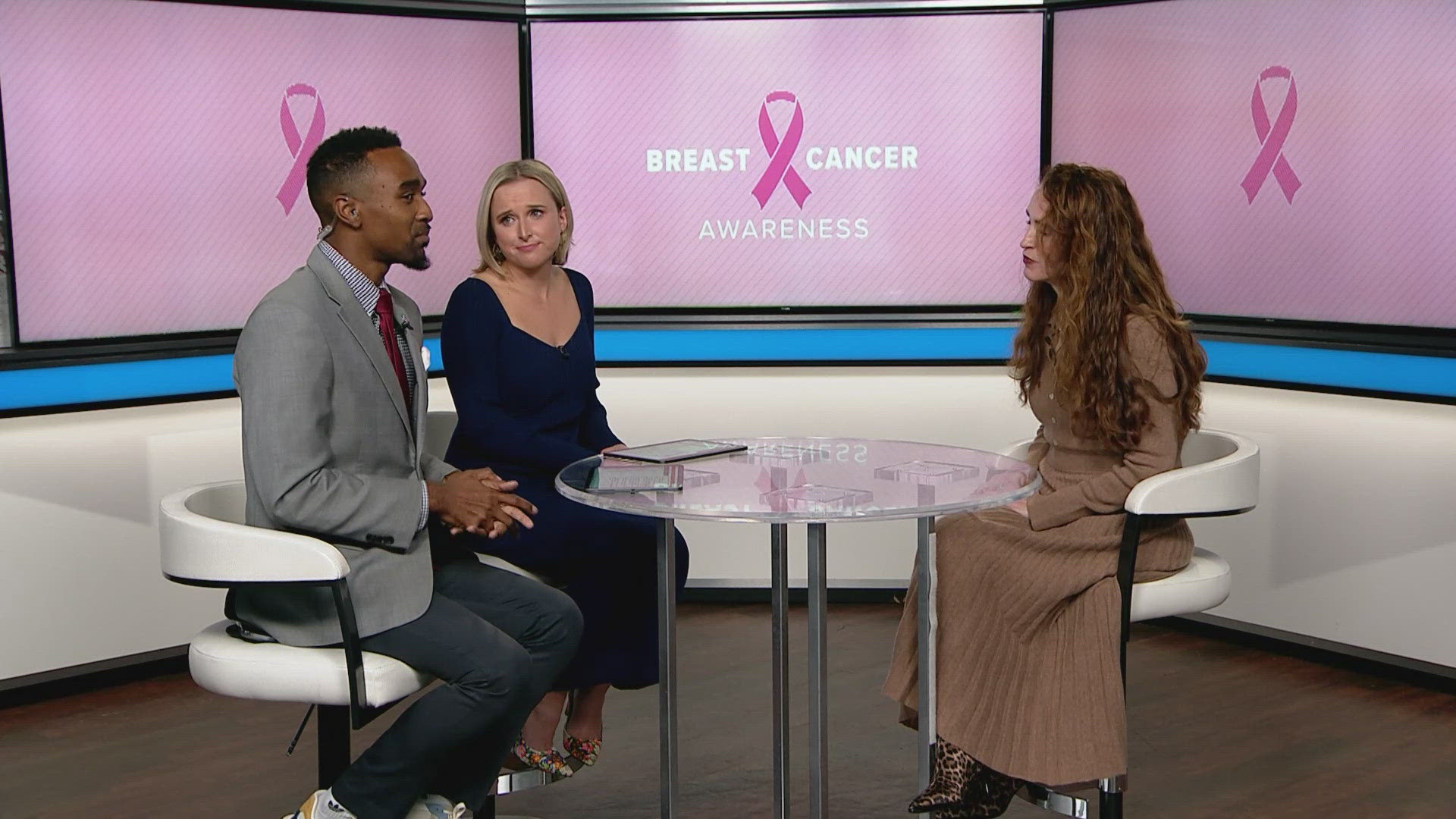ST. LOUIS — For 31 days screenings and prevention will be emphasized by people wearing the color pink all for Breast Cancer Awareness Month.
Breast cancer is incredibly common and affects one in eight women each year in the United States.
5 On Your Side sat down with breast cancer survivor Dr. Heide Rodgers, who is using her own personal experience to inspire women fighting their own battles.
"Everybody goes through hard things in life and it's how you go through that process, what your perspective is, that makes all the difference," she said.
It's a lesson Dr. Rodgers learned in June of 2021.
"I had an estrogen positive breast cancer, which is the most common type of breast cancer that women are diagnosed with," she said.
Rodgers found the cancer through her own self-exam.


"I'd had a normal mammogram a few months prior, and I had a tumor in the axillary tail which is more lateral and underneath the axilla," she said.
The diagnosis was humbling for Dr. Rodgers, since she works with breast cancer patients daily as a Mercy oncologist.
"I always tell my patients that the unknown is the hardest part, and once we have a plan, things are easier, and I think the same was true for me too. Once you have all the information and you know what steps to take, it's easier to get through it," she said.
While Dr. Rodgers said treatments are getting better, they're now seeing younger women get diagnosed.
"I think we don't really understand all the reasons of why we're seeing more breast cancer. Probably a lot of it has to do with environmental factors, so our processed foods, chemicals, things like that that we're exposed to," she said.
That's why mammograms are vital for detection. According to Dr. Rodgers, every woman over the age of 40 should get mammograms yearly.
"If they have a family history, they should start 10 years before the youngest woman in that family was diagnosed with breast cancer," she said.
Even though mammograms are the most effective way to detect breast cancer, Dr. Rodgers said, women should perform self-exams at home.
"I recommend that people do this a couple of times during the month, as your breast can change with hormonal changes throughout the month. It's important that you're also checking your entire chest wall," she said.
Dr. Rodgers not only sharing the facts with her patients, but she's also sharing her own story.


" I think I have a deeper understanding for what people are going through. I know what it's like to have gone through chemotherapy. I know the side effects, and I experienced it myself, so I think that patients have more trust when they're talking with me," Dr. Rodgers answered.
With all of that understanding comes wisdom, so this is Dr. Rodgers's wisdom for any warrior fighting the disease now.
"Take things one step at a time, take care of yourself, and allow people to help you. I think that was probably one of the hardest things for me was allowing others to come in and help," she said.


According to Dr. Rodgers, Missouri law requires doctors to let patients know if they have dense breast tissue following a mammogram. If you do have dense breast tissue, Dr. Rodgers said, you will need additional imaging like an ultrasound or an MRI to detect the cancer.

